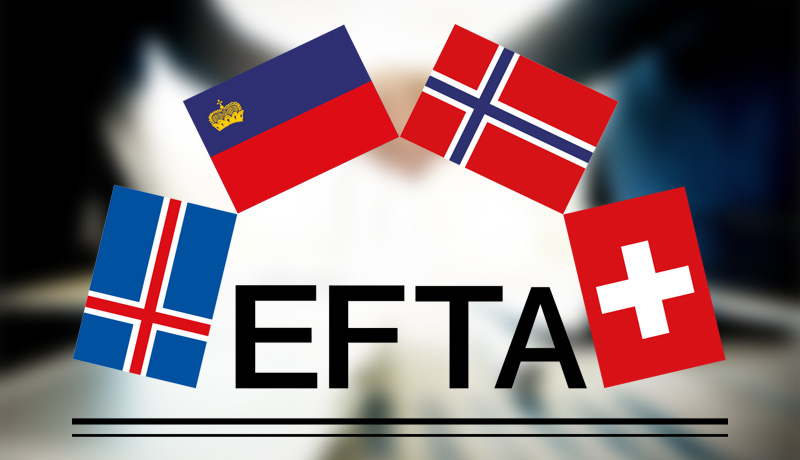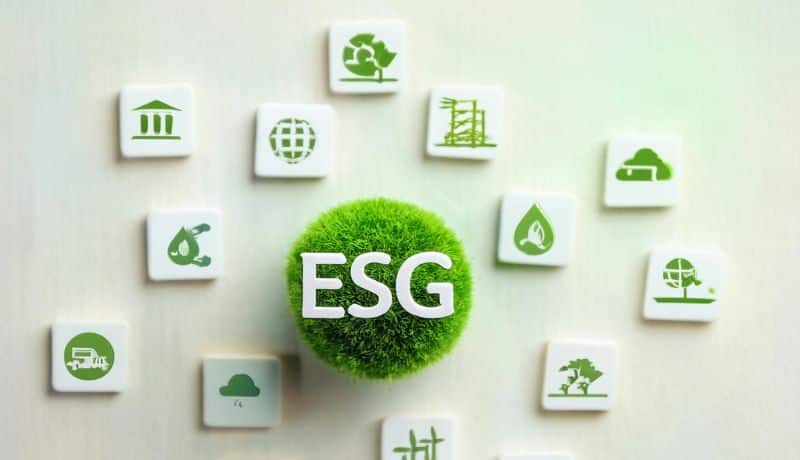India Signs $100 Billion Trade Agreement with EFTA: Highlights

India Signs $100 Billion Trade Agreement with EFTA: Highlights
- Authors
- Last Updated
- Tags
- Last Updated
- Tags
Share
Table of Contents
- Authors
- Last Updated
- Tags
March 10, New Delhi: India has signed a $100 billion trade agreement with the European Free Trade Association (EFTA), which includes Iceland, Liechtenstein, Norway, and Switzerland. According to Economic Partnership Agreement (TEPA), the EFTA countries have committed to facilitate investment of $100 billion in India in the next 15 years through private companies. Formed in 1960, EFTA is an inter-governmental organization set up in 1960 to promote free trade and economic integration for the benefit of its four Member States.
Talking about the agreement, Piyush Goyal, Minister of Commerce and Industry, Food and Consumer Affairs and Textiles said, “TEPA is a modern and ambitious Trade Agreement. For the first time, India is signing an FTA with four developed nations – an important economic bloc in Europe. For the first time in the history of FTAs, a binding commitment of $100 bn investment and 1 million direct jobs in the next 15 years has been given.”
Goyal added, “The agreement will give a boost to Make in India and provide opportunities to a young and talented workforce. The FTA will provide a window to Indian exporters to access large European and global markets. The investment promise from EFTA nations is a big opportunity for the pharma, medical devices, and food sectors. It is a modern trade agreement — it is fair, equitable, and balanced. And a win, win for all the nations involved.”
Negotiations on Trade and Investment Agreement were launched between the EFTA states and India in January 2008; however, the talks were paused in 2013 after 13 rounds of negotiations. The talks resumed in 2016 and the deal was finalized after another 21 rounds of negotiations.
Expressing his views about the partnership, Prime Minister Narendra Modi shared a note on X calling the deal a watershed moment. He added, “Delighted by the signing of the India-EFTA Trade & Economic Partnership Agreement. This landmark pact underlines our commitment to boosting economic progress and create opportunities for our youth. The times ahead will bring more prosperity and mutual growth as we strengthen our bonds with EFTA nations.”
The agreement comprises of 14 chapters. The focus topics include market access related to goods, rules of origin, trade facilitation, trade remedies, sanitary and phytosanitary measures, technical barriers to trade, investment promotion, market access on services, intellectual property rights, trade and sustainable development and other legal and horizontal provisions.
Highlights of the Economic Partnership Agreement
- EFTA has promised to promote investments aimed at increasing Foreign Direct Investment (FDI) in India by USD 100 billion over the next 15 years. Additionally, it also aims to facilitate the generation of 1 million employee opportunities in India.
- A legal commitment is made to promote target-oriented investment and job creation for the first time in the history of FTAs.
- EFTA is offering 92.2% of its tariff lines which covers 99.6% of India’s exports. The EFTA’s market access offer covers 100% of non-agri products and tariff concession on Processed Agricultural Products (PAP).
- India is offering 82.7% of its tariff lines which covers 95.3% of EFTA exports of which more than 80% of imports are gold. Sensitivity related to PLI in sectors pharma, medical devices, processed food, etc. has been taken while extending offers. Sectors like dairy, soya, coal, and sensitive agricultural products are on the exclusion list.
- India has secured commitments in 128 sub-sectors from Switzerland, 114 from Norway, 107 from Liechtenstein, and 110 from Iceland.
- TEPA is set to enhance exports in sectors like IT services, business services, personal, cultural, sporting, and recreational services, other education services, audio-visual services, etc.
- Service offerings by EFTA include accessibility in digital service delivery, establishment of commercial presence, and enhanced assurances and clarity on the entry and temporary residence of essential personnel.
- TEPA also has provisions for Mutual Recognition Agreements in professional services like nursing, chartered accountants, architects, etc.
- Commitments related to Intellectual Property Rights (IPR) in TEPA are at the TRIPS level. India’s interests in generic medicines and concerns related to the evergreening of patents have been addressed.
- The nation also demonstrates its commitment to sustainable development, inclusive growth, social development, and environmental protection.
- TEPA will empower the exporters’ access to specialized inputs and create an environment conducive for trade and investment.
- TEPA gives the opportunity to integrate into EU markets. Over 40% of Switzerland’s global services exports are to the EU.
- TEPA will give impetus to ‘Make in India’ and Atmanirbhar Bharat by encouraging domestic manufacturing in sectors like infrastructure and connectivity, manufacturing, machinery, pharmaceuticals, chemicals, food processing, transport and logistics, banking and financial services and Insurance.
- TEPA would accelerate creation of jobs in the next 15 years in India, including facilities for vocational and technical training. TEPA enables access to technologies in precision engineering, health sciences, renewable energy, Innovation and R&D.
EFTA is a regional trade organization consisting of four European states. It is one important economic block out of the three (other two – EU &UK) in Europe. Among the member nations, Switzerland is India’s largest trading partner followed by Norway. EFTA has signed about 30 trade agreements with around 40 countries and territories outside the EU.
Authored by:
InCorp Advisory | India Entry
Share
Share







































































